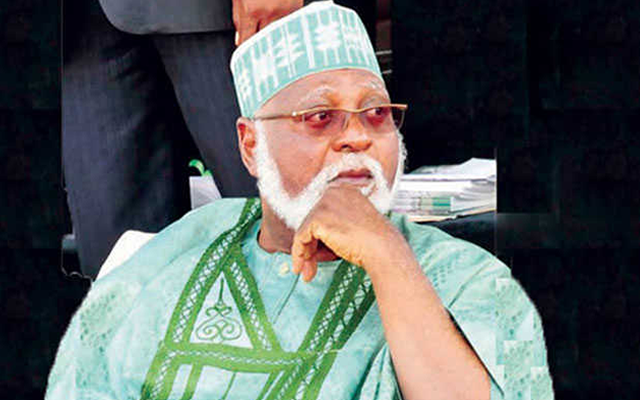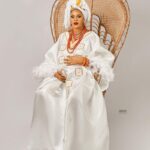
The National Peace Committee, led by former Head of State, Gen. Abdulsalami Abubakar, on Thursday, said the peace accord signed by political parties and candidates ahead of the 2023 general elections prevented an outbreak of violence.
The committee said it believed that the aim of the peace accord was realised because parties aggrieved with the outcome of the elections did not resort to violence but went to court to ventilate their grievances.
The Head of the NPC Secretariat and Executive Director of the Kukah Centre, Revd Fr Atta Barkindo, said this on Thursday in Abuja at the public presentation of the NPC Preliminary Evaluation Report.
Barkindo, while addressing journalists, said, “To be honest, people are abiding by the terms of the accord because at the end of the day when the results were announced, there was no widespread violence. People went to court, and that was what the accord says. If you’re aggrieved, go to court.
“Some people were aggrieved and they actually went to court. So. as far as we are concerned, the terms of the accord have been really complied with. The rest of the issues of violence, there are agencies constituted by law to address that. I think they should just get up and do their job.”
Barkindo said contrary to expectations from some quarters, the NPC had no constitutional powers to sanction those who violated the peace accord.
He said the job of arresting and prosecuting electoral offenders belonged to the security agents.
He said, “What people don’t understand is that the NPC, as a peace committee, doesn’t have the constitutional power to arrest or prosecute anybody. All the agencies constituted by law are available to do all that. What we are adding is a moral intervention, where these institutions have failed. So what we do is once we sign an accord and it is violated, there are institutions we hand them (erring politicians) over to. Even without the NPC handing them over, people can clearly see what is happening. Let the police and those who are constituted by law, get up and do their job.
“We are simply adding value and I don’t want people to place too much expectation on the National Peace Committee to go beyond its mandate. But beyond the signing of the peace accord, when you assemble presidential candidates two days before an election and they are all over the media, they can actually publicly recommit themselves to the process. For me, that is adding value to the entire electoral costs and that is what we bring to the table because it helps to douse the tension, reduce the level of bitterness and helps citizens to hold these people to account especially when they publicly declare that they will accept the outcome of the vote as long as it is free, fair and credible.”
In the same vein, a member of the National Peace Committee in charge of the Independent State-Based Peace Architecture in Kwara State, Rev Cornelius Fawenu, said the Abubakar-led committee deserved commendation for striving to ensure peace across the divides.
Fawenu said, “To enjoy a shared prosperity, we must put in our best to share the responsibility of building the nation. I believe strongly that it is that same spirit that has awoken and informed the encouragement of the existence of subnational units of the National Peace Committee, known as the Independent State-based Peace architecture across the states of the federation.
“And so, we must commend the wisdom of the founding fathers of NPC under the chairmanship of General Abdulsalam Abubakar and our erudite convener, Bishop Matthew Hassan Kukah. So the effort is highly commendable and highly appreciated across the states of Nigeria.”













